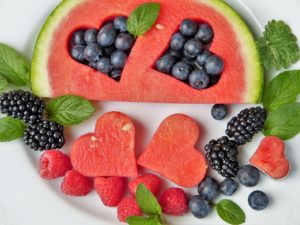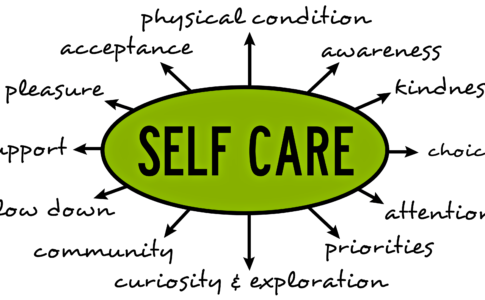Proper Nutrition for Your Total Wellness
Proper Nutrition – what does it mean for you?
As we delve into these Healthy Challenges each month, we hope you are beginning to investigate just how healthy you are, if you haven’t before. Focusing on making simple changes to your lifestyle can lead to amazing results in your health and wellness. Especially if you find that you are fatigued, lethargic or lacking energy, stressed or even depressed many days, making minor adjustments – such as drinking more water or increasing your daily servings of fruits and vegetables – can have major effects on how you feel.
Just as a car needs the right amount of oil, gasoline, and other fluids to run smoothly, our bodies need proper nutrition to function at their best. As educators, you no doubt find yourself pulled in a million different directions at times. With a finely tuned, healthy body and mind, you will be able to much more effectively handle stress, obstacles, frustrating and overwhelming situations, or anything else that life throws your way.
Is your diet full of proper nutrition? The World Health Organizationdefines proper nutrition as an adequate, well-balanced diet combined with regular physical activity. The term “proper nutrition” is often misinterpreted many people don’t fully understand how to implement into their daily lives. After this article, you will not fall into that category!

According to the World Health Organization, there are five key points to a proper, well-balanced diet for an adult.
- The most important foundation of a healthy diet is the presence of fruits, vegetables, legumes, nuts and whole grains. It is important to get 5 portions or 400g of fruits and vegetables a day. If you’ve started on the May Challenge of 3 daily servings, you are over half way there to achieving this goal!
- It is essential to get a variety of fruits and vegetables in your diet – include as many different colors as possible.
- Legumes include lentils and beans.
- Whole grains include whole wheat, steel cut oats, millet, oats and brown rice.
- Limit your intake of Potatoes and starchy roots.
- Reduce your calories from simple sugars to less than 10% of your total daily calories (ideally this amount should be less than 5%). This is equivalent to about 12 level teaspoons for a 2000 calorie a day diet. Simple sugars, include table sugar, sugar found in fruit, added to processed foods and found in honey, syrups, fruit juices and fruit juice concentrates.
- Less than 30% of total calorie intake should be from fats.
- Most of this should be unsaturated fats, such as those found infish, avocado, nuts, sunflower, olive and canola oils, as opposed to saturated fats.
- The American Heart Association advises 7% or less of total daily calories come from saturated fats (such as those found in fatty meat, butter, cream, ghee, lard, cheese, and palm and coconut oil).
- Limit Trans fats to less than 1% of daily intake. These fats are found in processed foods, fried foods, snack foods, fast foods, frozen pizza, pies, cookies, margarine, and spreads are not part of a healthy diet.
- You should be consuming less than 1 teaspoon, or 5g, of salt per day (Pink Himalayan Salt is an ideal option).
In order to maintain proper nutrition, there are some principles that you need to apply in addition to the ones above from the World Health Organization.
- Do not completely eliminate any type of food from your diet. Instead, incorporate all foods into your diet according to their ratio that is set by the food pyramid.
- Consume as much of your food as you can to their raw or original form
- Minimize your intake of processed and junk foods, as these typically offer no nutritional value and are much higher in calories.
- Replace your juice with raw fruit and avoid sodas.
- Vitamins, enzymes, and fiber are best consumed in the form of raw fruits and vegetables.
- Consume six smaller portioned meals in a day. Breakfast, lunch, dinner, two daytime snacks, and one pre-bed snack will help you feel full and avoid binge eating.
- Drink lots of water every day, the general recommendation is to consume at least eight to ten glasses a day. We should be doing great with this one, if you’re continuing the habit you started in our April Challenge!

Simplifying
It is really simple to get proper nutrition, EAT A WIDE VARIETY OF REAL WHOLE FOOD. Fresh meats, vegetables, fruits and low fat dairy will allow you to get all the various nutrients these foods provide. So, toss the boxes, and fill your plate with nature’s goodness and you will see and feel a marked difference in your energy levels, health and weight.
Final Thoughts
You should now have a good grasp on what proper nutrition is and how to best incorporate it into your life.
By following the tips above, your body will be healthier which will lead to you having more energy. Ensuring your body is receiving the nutrition it needs takes a little bit of work, but it is definitely worth it.






No comments